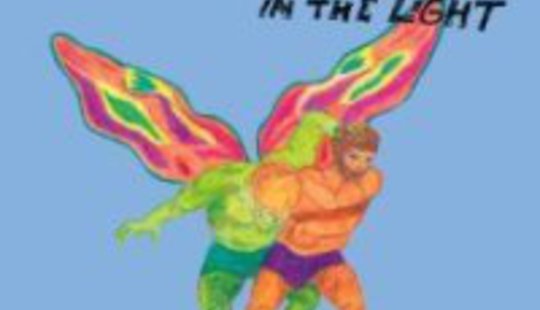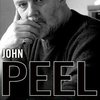Will Oldham needs no introduction as the best-connected mainstay of US indie / alt. country since the early 1990s, and one of the most sought-after collaborators, having worked with Bjork, PJ Harvey, and recently Mark Kozelek / Sun Kil Moon. Beneath all the joking, perving, and camp videos for Kanye West, his appropriation of Shakespeare, his engagement with Christianity and Eastern religion, and his knowledge of American folk music makes him, literally, Eliotic in his poetic sensibilities. No doubt, though, you could do with a guide through his formidable back-catalogue? This won’t be exhaustive – no Box of Chocolates or Boxhead Ensemble contributions – and you’re better off going to "The Royal Stable" website for a trawl through the singles. If you’ve only heard one album, it’s most likely I See a Darkness (1998), or Johnny Cash’s instant-classic cover of the eponymous song, so we’ll start with the first full-length album as Bonnie 'Prince' Billy, work up to the present, and loop back to the beginning, if that's alright?
BONNIE ‘PRINCE’ BILLY: I See a Darkness (1998)
With an album of such sublime magnificence, it’s hard not to fawn, and also be wary of disappointing the many, many people you know who regard this as not only Will Oldham’s greatest, but indeed, one of the very greatest albums made by anyone at all, since folk music went electric. Arguably, it’s in the album’s openness to whimsy that its perfection lies – opener, 'A Minor Place', makes a friend of sadness and a ditty of wallowing in self-pity; toward the end of the album, 'Today I Was an Evil One' isn’t about the demon-drink, so much as that buffoon-making falling-over juice. These are just songs – not proclamations from on high – the former seems to say, and the latter: there’s nothing romantic about self-destruction; you can’t play Prince Hamlet forever. Still, we come back to this album for its run of soul-baring songs that state their thesis – That life can be almost unbearably hard – with a curiously calm logic, no hysteria or self-pity, and the constant suggestion that the singer could step into the abyss at any moment, but chooses to walk this path for the time being, all the time this close to the edge, because You need to know this; the time for shame at your weakness is gone... and just maybe because the darkness implies an eventual light. The insistent, confident minor-chords mark that deliberation, just as the exquisitely plaintive melodies suggest the strange comfort of sadness, or the paradox that a memory can be sustaining, even as it hints that the memory of happiness may be all there is left.
Thesis? Calm logic? Confident minor-chords? Do these square with our preconceptions about what makes for great tragedy? Well, Yes, because 'I See a Darkness' is so candid in its Platonic love that it underscores the despair that would prompt such a confession: "well you know I have a love / a love for everyone I know / and you know I have a drive / a drive to live, I won’t let go // but can you see its Opposition... rises up sometimes." The chorus is triumphant, but there’s a hint this may be the candour and clarity that comes before suicide – an end to the cycle of euphoria and dysthymia simulated by the song’s structure. Nothing’s resolved just yet, but there’s method in the subsequent madness: 'Today Was another Day Full of Dread' dissects awe of the Eternal (“by dread I’m inspired…”) and distinguishes it from the baser emotion that makes us all human ("by fear I’m amused"). "Nip nap / it’s all trap" trills the chorus, Hamlet-like – implying, however ill-starred, you can take some perverse pleasure when you "watch it all come down."
It’s not all explicit representations of depression, though. 'Madeleine-Mary' is a miniature Edgar Allen Poe story, with an urgent pulse of heavy bass, and sinister wah-wah guitar. The title seems to acknowledge Oldham’s past tendency to see (or at least, depict) women as Madonna / Whore, and builds up the horror rapidly, by sending Mary to sea, seemingly alone, as a ship’s maid, and the object of many boys’ lust. She’s a coquette on the surface – "for she kept herself kept be-low / and all her feelings private" – but there’s a succubus on board, too hideous to describe, for "at night, above our sleeping heads / our sleeping dreams were haunted". It’s a horrific song, because it allows for the possibility that the unspeakable demon is Mary... and at the same time provides a glimpse into that male psychosis that projects the agency of lust onto its object, and so justifies the ambiguous murder-rape, or pre-emptive suicide, of the song’s conclusion ("none of us did get it / if there was one, well I think / he sleeps beneath the water"). By refusing to explicitly condemn, or dwell on titillating details (as in a thousand inferior murder-ballads, metal & hardcore songs, or action-movies, where condemnation of violence is a pretext to enact it) the song brings you to the darkest recesses of the soul where false-morality is no longer a consolation – are you listening to this song to "get a glimpse" (as the boys want) or because you truly agree that lust can lead to evil?
That may seem like a disproportionately-long reading for one song, but 'Song for the New Breed' – in which pregnancy is possession, or infestation by some alien parasite – would support a similarly complex reading. The latter was written by film-maker Diane Bellino, but it’s still chosen by Oldham, and it’s through such confrontations with his most misanthropic or misogynous feelings that Oldham can justify the sentiment of his most straightforward song, the album’s closing track: 'Raining in Darling'. To confess is to abandon any self-love that would excuse past crimes (the "whoring" of 'I See a Darkness', say), or refuse the atonement that makes sincerity possible; hence we know – or want to believe – there's real sincerity in that final break from weariness to a high note, on "I know you love me / I know you do..." Ultimately, that skull on the album cover – it turns out – is a ring.
{10 / 10}
[* The album was #9 in Pitchforkmedia’s 100 Albums of the 1990s, ahead of bleak masterpieces In Utero (by Nirvana), and Spiderland (by Slint), the cover of which was photographed by Oldham.]
BONNIE 'PRINCE' BILLY: Blue Lotus Feet EP (1999)
Harking back to the jaunty country-music of the early Palace Brothers singles, and the simplicity of Days in the Wake (1994), this unlikely grouping of two 4-minute songs, and 5 others, most less than a minute, marks a pleasant contrast from I See a Darkness, and is a personal favourite EP from the Royal Stable. 'Southside of the World' celebrates sleazy characters ("where were the rapists / when I was a child? / chorus: the southside of the world! / they were my neighbours / that’s why I’m so wild"); by contrast, 'One with the Birds' pleads to take love seriously. After that comes a peculiar foray into "devotional songs" derived from Brahminism (presumably) that might be mistaken for a perverse exercise in minimalism (one tune is dispatched in 7 seconds) were they not so precious, and so entirely appropriate in that form.
{08 / 10}
BONNIE ‘PRINCE’ BILLY & THE MARQUIS DE TREN: Get on Jolly EP (2000)
Selections from Rabindranath Tagore’s Gitanjali (or “Stray Birds”) set to music. Don’t know it? You should – it won the Nobel Prize some while back. Inspired by Japanese haiku, the Indian poet developed a two-line form to express epiphanies about the nature of God, Life, Art, Love that would be so condensed that the delicate placing of familiar symbols prompts an explosion of associations, saying more than many sonnets, even epics. Musically, East meets West, in that Oldham & Mick Turner (Dirty 3 guitarist) use a harmonium & pedal-steel to provide the drone accompaniments. ‘64’ sees the narrator asking a girl he meets, out walking, to lend him her flashlight, at which she protests that she meant to shine it on "the animals in the water", and at the sky, where she "might touch a star". It’s reductive to say that Tagore’s distinguishing between erotic love (of one person desiring another, wanting her light), and spiritual love that extends to the whole universe; after all, he’s still writing about a strange girl shining her light on "animals in the water". Needless to say, Oldham nails both senses.
{07 / 10}
RIAN MURPHY & WILL OLDHAM: All Most Heaven EP (2000)
Barking. Utterly barking. On the cover, Will & Rian are kitted out as 18th century nobles, and the parodic chamber-music seems to have followed from this peculiar wheeze to get some costumes, and arse around in a mansion. "You think you know me?!" Oldham seems to be saying. "I’m not your one-trick pony!"
{05 / 10}
BONNIE 'PRINCE' BILLY: Ease Down the Road (2001)
Consistently looser and more upbeat than I See a Darkness, the follow-up saw Oldham equal many of his best songs to date, and yet – on a first listen – it can seem flippant, thin even; suffering the common fate of many successors to great albums. Your heart may sink slightly, hearing the noodley guitar solo of ‘May It Always Be’, followed by the sparse, drone-led ‘Careless Love’ (sharing its title with a Cash / Dylan song, but that’s about all). Next up, ‘A King at Night’ hovers between the mood of the two – murder & oral sex in the lyrics – but the guitar-line rolls along gently, and if this song is a coda to the Hamlet narrative threading through I See a Darkness, then the Prince is quite mad, "bounded in a nutshell..." as the lyrics say in a borrowing from Shakespeare. All of these songs are growers, of course, and it’s the more immediate tunes, further on, that demand repeated listens for the album as a whole.
With ‘Just to See My Holly Home’, Oldham proves he’s master of the Murder Ballad, and not in the novelistic, recherché fashion of Nick Cave. "Sarah [who] walks a slinky strut" may be a "cautious and sure slut", pursued by the equally cartoonish "Evil Jack" but the weird neologisms in the lyrics make their story compelling, and as harmonies are added to the chorus, you can believe the singers are raising a vengeful ghost. Returning to the mood of the opening triad, ‘At Break of Day’ depicts the final hours (and final thoughts) before suicide with so much candour, the song demands a desperate interrogation so as to be sure – that’s what the song means, right? Is there some message of hope in there? If the singer can identify this well with his persona, he must have got through his own dark night... but is he through it for good?!
The album’s middle four tracks all celebrate love and sex in some subtly different aspect. ‘After I Made Love to You’ perfectly conveys the post-coital calm and fulfilment you’d expect from the title; played and sung as if stretching limbs and catching breath. The faint sadness comes from the line "why’s it that we don’t feel guilty / why’s it seem we’re doing right / when we’re doing something filthy / in a rented room tonight?" The singer seems to recognize that our values are contingent on the pleasure or affect we attach to the acts and, in his shagged-out way, he questions a whole set of values lying beyond the simple, contained space of the rented room. Next, ‘Lion Lair’ is an all time favourite, beginning as a journey into the wilderness (the dual vocals suggesting Oldham & his double; part Gilgamesh, part Don Quixote), but articulating that strange insight that when we make another person gasp or smile, or lose control, and close their eyes, see stars, feel fire... well, we’re as close to gods and goddesses as we can get, aren’t we? Over washes of synth, and a twinkling guitar part by Dave Pajo, Oldham & Oldham intone "colours red were rocks and sky / power blinked, confused the eye // had himself in no time at all / hand on shaft and gripped his balls / wished your mouth would come down on it / feel your lips sink warm upon...it" –delivered with such portent (and lack of irony) you can hear him relishing his power of procreation, like any number of apocryphal and Ancient Near Eastern gods who manumitted the stars and planets, solo. The story of Daniel, aside, the title refers back to an old persona of the Prince – see the vaguely Oldham-like big cats on the cover of There Is No-One (1993) and Viva Last Blues (1995) – suggesting that in his mood-swings, Oldham can be an animal (not as crass or simple a metaphor as it sounds, but more of this later).
Finally, the album closes on a triad of songs as perfect as any Oldham’s ever written. ‘Sheep’, ‘Grand Dark Feeling of Emptiness’, and ‘Rich Wife Full of Happiness’ could easily have fit on I See a Darkness (whereas ‘Lion Lair’ with its expansive, almost post-rock feel, wouldn’t quite). Through these, the impulse to create, and its twin impulse to procreate, are explored, but if this sounds dry and cold as a reading, know that Oldham’s talking about his very reason for living, and that same urgency is in every strike and strum of the guitar. Yet again, ‘Grand Dark Feeling...’ opens with the singer setting off to discover himself, but this time he has a strange encounter that sees him beaten by “Billy and Frankie / and Henry and Joe” (allusions to archetypes from folk-songs? Frankie who killed Johnny? John Henry who beat the devil?).
Oldham’s despair is underscored by a deathly-sounding Pajo, and lyrics so dense with archaisms (or neologisms) the singer sounds stranded in some historic backwater: "I’m afeard if I don’t have / a Piglet, Lamb, or Little Calf / I’ll chop my human-ness in half / and be as worm or virus // Kids I’ve had and they are sung / upon folks ears my babes are hung / and rhythmically they live among / and grow but don’t get old." Through his art, Oldham recovers from his beating, much as he prevailed against “Black” in the penultimate track of I See a Darkness, and a key-change marks his redemption (the second vocal, finally, Oldham’s own), "...we can age and fall away / and meet again some golden day / and through it all, a happy way / in starlight and in gold."
{09 / 10}
BONNIE 'PRINCE' BILLY: Master and Everyone (2003)
Originally intended as an EP, this somewhat underwritten collection of songs showcased Oldham’s voice, prettily paired with female harmonies; only ‘Wolf among Wolves’ really has emotional resonance, though, as Oldham revisits the Steppenwolf metaphor to hint at his separation from the herd (perhaps due to depression). Here and in the other fabliaux (or animal-songs), there’s a mystical sense of kinship with animals, having recognized the bestial side of his nature, and that animals have no need of souls to be in-the-moment, as so many Romantic and Beat-poets (e.g. Michael McClure) have done, having rejected bourgeois assumptions about the importance of humanity. {06 / 10}
BONNIE ‘PRINCE’ BILLY: Sings Greatest Palace Music (2004)
Yeah, and he plays it Nashville-style. Say no more. A handful of (previously lightweight) songs from Days in the Wake (1994) and Arise Therefore (1996) grow some balls, here, but the best interpretations are those written in a country idiom (e.g. ‘Poor Boy’), and the rest seem to baffle their interpreters, making them schmaltzy and sometimes excruciating.
{05 / 10}
BONNIE 'PRINCE' BILLY & MATT SWEENEY: Superwolf (2005)
Matt Sweeney was in Chavez. They were on Matador in the 1990s, riffing like a beast. These days, you’ll mostly find him laying down some mean guitar for BPB, live. If you’ve never heard of Chavez, it’s because they were only kinda good, when it came to the songs. Unsurprisingly, this exercise in remote collaboration (Matt on music, Bonny on lyrics) is only kinda good. Closest in sound to Joya – Oldham’s first album under his own name – it drifts a little in places, and seems relatively short on hooks. The most unusual track here (for BPB) lays a long sample of movie dialogue over the top of a sinister arpeggio, but deviates little from similar pieces by Dave Pajo / Papa M. Lyrically, Oldham is on reasonable form, bringing in a larger menagerie than ever to defamiliarize death ("in a shark's mouth"?!), sexuality ('Goat and Ram'), and also religious ecstasy ("I sing evil / I sing good / I sing all a seagull should / and if you melt it / then I should melt myself into you" on 'Only Someone Running', one of the best here). Such is Oldham's ironic sensibility, 'Beast for Thee' is one of the most delicate, tender tracks in years - with synths reminiscent of Tunnel of Love-era Springsteen - but even these highpoints can't quite dispel the sense of being a little tired.
{06 / 10}
BONNIE ‘PRINCE’ BILLY: Summer in the Southeast: LIVE (2005)
Blistering re-interpretations of some classic songs, complete with lupine hollers and whoops, lively versions of others that were wallflowers within their parent-albums, and (of course) the slowed-down and spacious ‘I See a Darkness’ that lets you savour every note. Not actually one of the great live-albums (Nick Cave’s Live Seeds being a masterclass in how to improve on songs that were devastating already), but any disappointment felt is probably the consequence of great gigs remembered.
{08 / 10}
TORTOISE & BONNIE ‘PRINCE’ BILLY:
The Brave & the Bold (2006)
Inexplicably lumpen and turgid, and rightly slated from every quarter. Even completists probably won’t want to listen to more than a couple of tracks. The only re-interpretation here that (marginally) improves on the original is 'Daniel' by Elton John, and that’s a compliment to the artist formerly known as Reginald Hercules Dwight (he’s hard to mess up), not a diss. {03 / 10}
BONNIE 'PRINCE' BILLY
The Letting Go (2006)
 At its best – this is gorgeous; for the most part, though, it’s too inconsistent to let the lighter songs be enjoyable, by easing you into their mood. Did Oldham think that lots of half-ideas would make up for few good ones? The cover photo (of a clifftop path with lush green grass) announces some kind of thematic continuity or complementarity with Ease Down the Road, and though the voice- and string-arrangements are intricate to match the detail of that record, there just isn’t the same emotional impact. ‘No Bad News’ has been read by countless reviewers as Oldham’s long delayed 9/11 song, and although it runs to abstraction ("Something bad happens / and a lot of people go / Turning half the heart / into something hard and dark") the unknown recipient of the news comes to life in small, tenderly observed details. Later on, ‘The Seedling’ merges the muted hardcore riff of ‘Madeleine Mary’ with the pregnancy-as-infestation troping of ‘Song for the New Breed’, as male and female backing vocals belch and shrill, toad- and bird-like. Okay, the song doesn’t suffer by comparison, but the album does since this is one of the better tracks. Nonetheless, ‘Strange Form of Life’ is buoyed up by a curious, rolling guitar-part that makes you want to sway your head like Thom Yorke whose rare talent the song recalls. It’s proof (albeit frustrating) that Oldham remains in that exclusive club who can produce songs years after year that – for their duration at least – feel like they’re all you ever want to hear, while saying something that you always needed to hear. "The softest lips ever / 25 years I waited to kiss them" he sings, and if there’s an allusion to cunnilingus in the next line, then it’s a subtle coding of generosity (pleasure in another’s pleasure), set against one of his favourite topoi, fellatio. There’s also a sense of heartbreak when Oldham’s voice crumbles a few lines further on, matched by very few songs, notably The National’s ‘Slow Show’ ("you know I dreamed about you / for 29 years, before I saw you"); that’s to say, it’s the kind of lyric you can’t sing without direct experience of a lifetime waiting for love or, well... greatness.
At its best – this is gorgeous; for the most part, though, it’s too inconsistent to let the lighter songs be enjoyable, by easing you into their mood. Did Oldham think that lots of half-ideas would make up for few good ones? The cover photo (of a clifftop path with lush green grass) announces some kind of thematic continuity or complementarity with Ease Down the Road, and though the voice- and string-arrangements are intricate to match the detail of that record, there just isn’t the same emotional impact. ‘No Bad News’ has been read by countless reviewers as Oldham’s long delayed 9/11 song, and although it runs to abstraction ("Something bad happens / and a lot of people go / Turning half the heart / into something hard and dark") the unknown recipient of the news comes to life in small, tenderly observed details. Later on, ‘The Seedling’ merges the muted hardcore riff of ‘Madeleine Mary’ with the pregnancy-as-infestation troping of ‘Song for the New Breed’, as male and female backing vocals belch and shrill, toad- and bird-like. Okay, the song doesn’t suffer by comparison, but the album does since this is one of the better tracks. Nonetheless, ‘Strange Form of Life’ is buoyed up by a curious, rolling guitar-part that makes you want to sway your head like Thom Yorke whose rare talent the song recalls. It’s proof (albeit frustrating) that Oldham remains in that exclusive club who can produce songs years after year that – for their duration at least – feel like they’re all you ever want to hear, while saying something that you always needed to hear. "The softest lips ever / 25 years I waited to kiss them" he sings, and if there’s an allusion to cunnilingus in the next line, then it’s a subtle coding of generosity (pleasure in another’s pleasure), set against one of his favourite topoi, fellatio. There’s also a sense of heartbreak when Oldham’s voice crumbles a few lines further on, matched by very few songs, notably The National’s ‘Slow Show’ ("you know I dreamed about you / for 29 years, before I saw you"); that’s to say, it’s the kind of lyric you can’t sing without direct experience of a lifetime waiting for love or, well... greatness.
{07 / 10}
BONNIE 'PRINCE' BILLY, WITH MEG BAIRD & GREG WEEKS: Ask Forgiveness EP (2008)
Finally, a return-to-form (vis-à-vis arrangements), if only for a covers album, with Meg & Greg from Espers. The stylings of the latter (mediaeval psychedelia?) are largely absent, but they flesh this out splendidly. Like Dave Pajo or Mark Kozelek covering The Misfits and AC/DC, Oldham puts some spirituality into the Devil’s music, as well as brushing up country numbers to appeal to hipsters.
{07 / 10}
BONNIE 'PRINCE' BILLY:
Lie Down in the Light (2008)
 At last – the long-awaited return-to-form for Oldham as a songwriter! After much speculation that Ease Down the Road (2001) was the companion-piece to I See a Darkness (1998), or The Letting Go (2006) was the blah-blah-blah to Ease Down the Road, Lie Down in the Light makes the best case to complement the masterpiece from a decade before, being the strongest collection of songs in a long while, and a consistent assertion of positivity. With the line “I am the king of infinite space” (in ‘For Every Field There’s a Mole’), Oldham repeats an allusion to Hamlet – something he last did on ‘A King at Night’, and before that ‘Another Day Full of Dread’ – but renounces the Prince’s own sentiment, in context.
At last – the long-awaited return-to-form for Oldham as a songwriter! After much speculation that Ease Down the Road (2001) was the companion-piece to I See a Darkness (1998), or The Letting Go (2006) was the blah-blah-blah to Ease Down the Road, Lie Down in the Light makes the best case to complement the masterpiece from a decade before, being the strongest collection of songs in a long while, and a consistent assertion of positivity. With the line “I am the king of infinite space” (in ‘For Every Field There’s a Mole’), Oldham repeats an allusion to Hamlet – something he last did on ‘A King at Night’, and before that ‘Another Day Full of Dread’ – but renounces the Prince’s own sentiment, in context.
In musical and lyrical terms, “light” here means happy, and often horny – the opening track sees the singer on the beach, surrounded by family, ‘girlfriends’ (plural) and – look! – ‘there’s a horseshoe crab’ he sings with childish glee. Not every track boasts a great hook, but the stylistic unity enables you to detect and enjoy the nuances of each song, rather than re-setting your expectations with each change of direction, as on the last three full-length albums (inc. Superwolf). As a narrative of personal progress, the distance travelled from the darkness can be seen in this album’s fellatio song (not saying there’s one on every album, but – y’know – there have been a lot). True, ‘So Everyone’ lacks the delicacy or symbolic complexity of ‘Lion Lair’ but it’s strident and catchy, and it’s one of Oldham’s rare duets that gives equal presence to a bold, slightly mocking female vocal, so that she’s a real partner in the here and now – not wistfully remembered, as in the earliest Palace songs, or a spectral presence harmonizing on a few lines as she flits through his mind. Instead: "[Will] Oh Lady! / [Ashley] Oh Boy! / Go down on your knees / and do me / where everyone sees me!"
Unlike the brief dalliances in bluegrass (say) that broke up previous albums, or Dirty 3-pastiches that dragged on and on, this album’s one moment of woodwind-led jazz is surprisingly effective (‘For Every Field There’s a Mole’). Later, the strident piano chords of ‘Missing One’ remind you what’s – well, been missing, over the last decade; like many of the songs on Darkness the deliberate cadence and precise lyrics work out a thesis about how a lover and her lessons for living must be integrated into your psyche, complementing your lack. Similarly, ‘You Remind Me of Something (The Glory Goes)’ might be an upbeat, fiddle-led, country song, but the image of dancing to dawn refers back to a song about planning to commit suicide at break of day, and there’s an undercurrent of sadness in the melody. On the chorus, Oldham practically defines the mechanism of ritual healing since time immemorial: "you remind me of something / the song that I am / and you sing me back into myself", followed by the notion that song is a sacred art to show the underlying unity of all things, or reconcile them when strained: "when I awake / when I’m sleeping / the song is a man / and a woman / and everything else". Best of all is ‘I’ll Be Glad’ – the Christian song Oldham’s been struggling to write all his career; that’s to say, one without a note of irony. Yes, it’s a “low-Church” folksong with traditional symbols, barely modified, but the delivery works because there’s a sense of having accepted the truth of those symbols, and the need for spiritual guidance. When they come in, the male/female chorus vocals are perfect – clear as organ-notes.
{08 / 10}
LINKS:
Bonnie 'Prince' Billy @ Drag City
The Royal Stable A Dutch fansite.






















